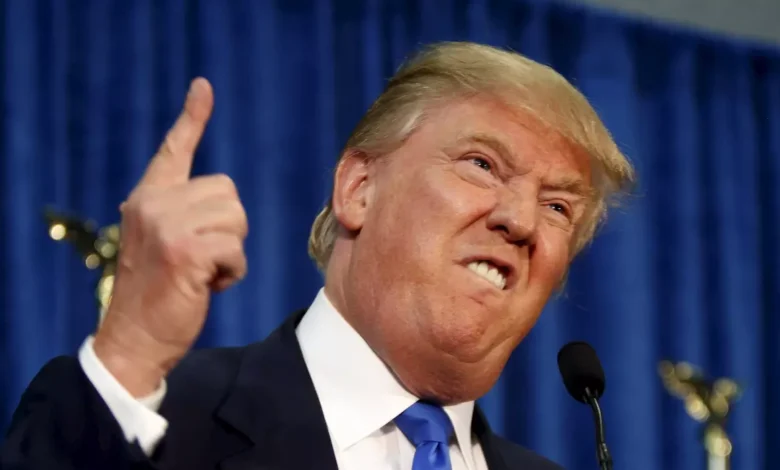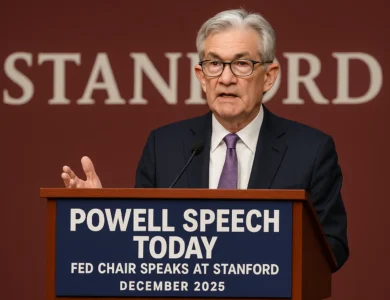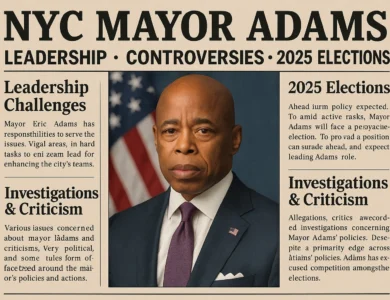
In the digital age of social media and instant information sharing, health speculation about public figures, particularly presidents, has become increasingly common. Recent months have seen a surge in online discussions asking “Did Donald Trump have a stroke?” – a question that has sparked widespread debate across various platforms. As the 78-year-old president continues his second term, questions about Donald Trump’s health have intensified, fueled by various factors including his age, public appearances, and periods of reduced visibility.
The speculation surrounding Trump’s medical condition represents a broader phenomenon in American politics where presidential health becomes a subject of public scrutiny. From photographs analyzed for signs of illness to gaps in public appearances that fuel stroke rumors, the intersection of politics, medicine, and public interest creates a complex landscape of facts, theories, and misinformation. Understanding what we actually know versus what remains speculation is crucial for informed public discourse.
This comprehensive examination delves into the Trump stroke speculation, analyzing available evidence, medical records, official statements, and the broader context of presidential health transparency. We’ll explore the origins of these rumors, examine documented health information, and provide a factual assessment of the claims circulating online.
The Origins of Donald Trump Have a Stroke Rumors
Social Media Speculation and Viral Claims
The Trump health rumors gained significant traction through social media platforms, where users began analyzing photographs and public appearances for potential signs of neurological issues. In September 2020, Trump posted on social media a denial that he had suffered “a series of mini-strokes” — without anyone having suggested that he had. This unprecedented denial actually amplified speculation rather than quieting it.
Recent health speculation has been fueled by several factors:
- Photographs showing bruising on Trump’s hands
- Periods without public appearances
- Social media analysis of speech patterns
- Conspiracy theories about medical emergencies
Recent September 2025 Speculation Wave
On X, the hashtags #trumpisdead and #whereistrump trended. Millions of people made or watched videos on TikTok speculating Trump had died or suffered a stroke or other serious medical emergency. The rumors began circulating on social media on Friday after some noted Trump had not been seen in public for several days.
This recent wave of Donald Trump stroke rumors demonstrates how quickly unverified health claims can spread in the digital ecosystem, creating widespread confusion and concern.
Documented Medical History and Official Records
Presidential Physical Examinations
Trump’s medical records from his presidency provide the most reliable information about his health status. The most in-depth account about Trump’s health occurred after his first physical examination at Walter Reed Medical Center in 2018. Jackson detailed to reporters Trump’s high cholesterol and a weight of 239 pounds. That increased to 243 pounds at Trump’s physical in 2019.
Recent Medical Appointments
President Donald Trump is set to receive the first physical of his second presidential term on Friday, April 11, at the Walter Reed National Military Medical Center. Trump attended a medical appointment on Friday—the first physical of his second presidential term.
Key documented health information includes:
- Regular presidential physicals at Walter Reed
- Treatment for COVID-19 in 2020
- Routine medical monitoring
- Official physician statements
Analyzing the Evidence: Medical Facts vs. Speculation
What Medical Professionals Say
When examining stroke symptoms and Trump’s health condition, it’s important to understand what constitutes actual medical evidence versus speculation. Medical professionals emphasize that:
- Visual analysis of photographs cannot diagnose medical conditions
- Normal aging can cause various physical changes
- Temporary changes in appearance don’t indicate serious illness
- Professional medical evaluation is required for accurate diagnosis
Debunking False Claims
An October 2024 YouTube video claimed that Trump had experienced a stroke while climbing into a garbage truck, but this was deemed false as there was no evidence to support the claim. This exemplifies how health misinformation can spread rapidly without factual basis.
The Role of Presidential Health Transparency
Historical Context of Presidential Medical Disclosure
Presidential health records have long been subjects of public interest and political debate. The balance between privacy and transparency creates ongoing tension in American politics. His annual physical on Friday could potentially give the public its first details in years about the health of a man who in January became the oldest in U.S. history to be sworn in as president.
Current Medical Privacy Standards
The disclosure of Trump’s medical condition follows established precedents where:
- Presidents undergo regular physical examinations
- Summary reports are typically released
- Detailed medical records remain private
- Emergency situations may require additional transparency
Impact of Age-Related Health Concerns
Understanding Age and Stroke Risk
At 78 years old, Donald Trump’s age places him in a demographic with naturally elevated health risks. Stroke risk factors increase with age, making health monitoring more critical. However, age alone doesn’t indicate the presence of specific medical conditions.
Medical considerations for presidents include:
- Regular cardiovascular monitoring
- Neurological assessments
- Cognitive evaluations
- Stress management protocols
Media Coverage and Information Verification
Distinguishing Reliable Sources
When evaluating Trump health news, it’s essential to distinguish between:
- Official medical statements
- Verified news reporting
- Social media speculation
- Conspiracy theories
Photos of bruises on his hand, followed by days without public events, fueled wild rumors online. This demonstrates how normal variations in public schedules can be misinterpreted as health crises.
Current Health Status and Official Statements
Recent Official Communications
The most recent official information about Trump’s health comes from White House medical staff and official communications. The White House said a summary of the results of President Trump’s physical will be released. These official channels provide the most reliable information about presidential health status.
Addressing Misinformation
President Donald Trump is dismissing rumors about his health after speculation on social media because of a lack of public events over the last week. Official responses to health speculation demonstrate the administration’s approach to addressing misinformation while maintaining appropriate medical privacy.
The Psychology Behind Health Speculation
Why Public Figures Face Health Scrutiny
The intense focus on presidential health reflects several psychological and social factors:
- Public investment in leadership stability
- Media-driven speculation cycles
- Partisan political motivations
- General health anxiety in society
Understanding these motivations helps contextualize why Trump stroke rumors gain traction regardless of factual basis.
Conclusion
After examining available evidence, medical records, and official statements, there is no credible evidence supporting claims that Donald Trump had a stroke. The speculation appears to stem from a combination of social media rumors, political motivations, and normal concerns about age-related health risks. While Trump’s health remains a legitimate subject of public interest given his role as president, separating fact from fiction requires relying on official medical sources rather than online speculation.
The ongoing health speculation surrounding political figures highlights the importance of media literacy and critical thinking in the digital age. Rather than amplifying unverified claims, public discourse benefits from focusing on documented information from credible medical and official sources.
Moving forward, discussions about presidential health should prioritize factual accuracy, respect for medical privacy, and reliance on professional medical assessments rather than social media analysis or conspiracy theories.
Read More: Get to Know Chuck Schumer the Prominent U.S. Senator






